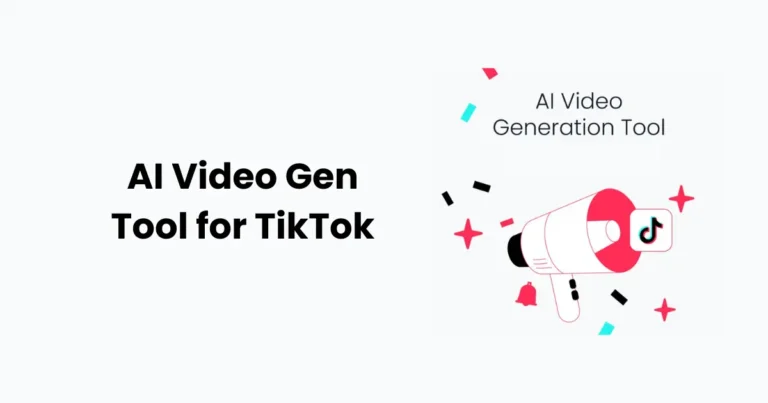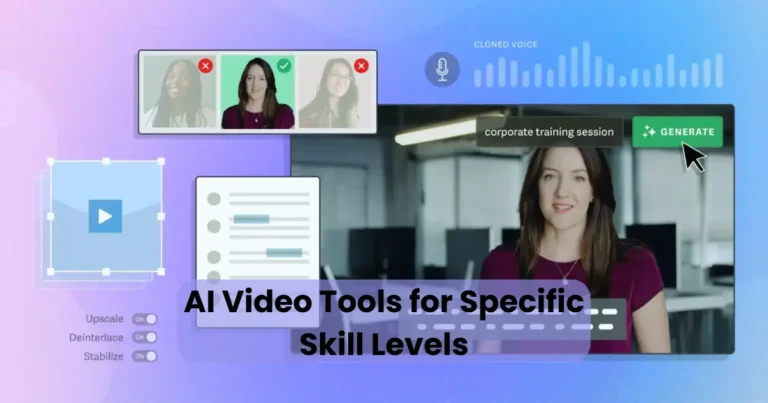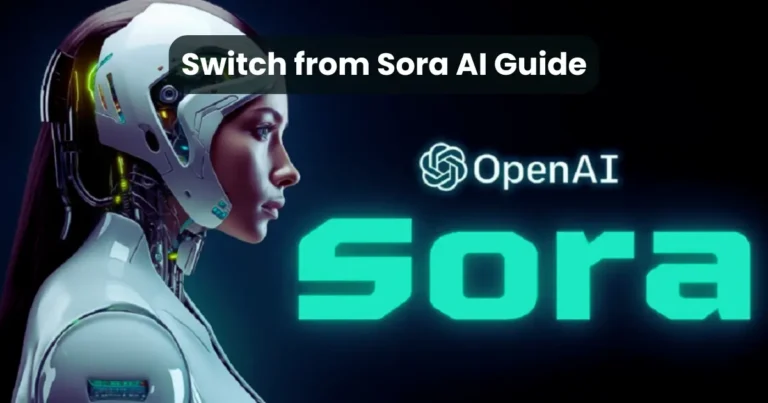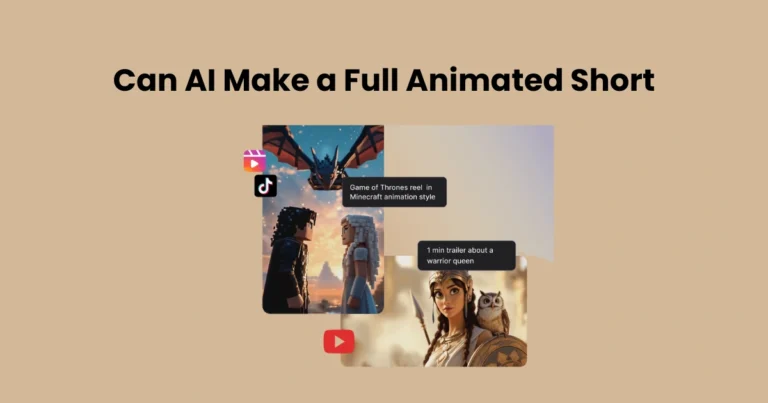Step-by-Step Guide: Fact Check Video Script with AI
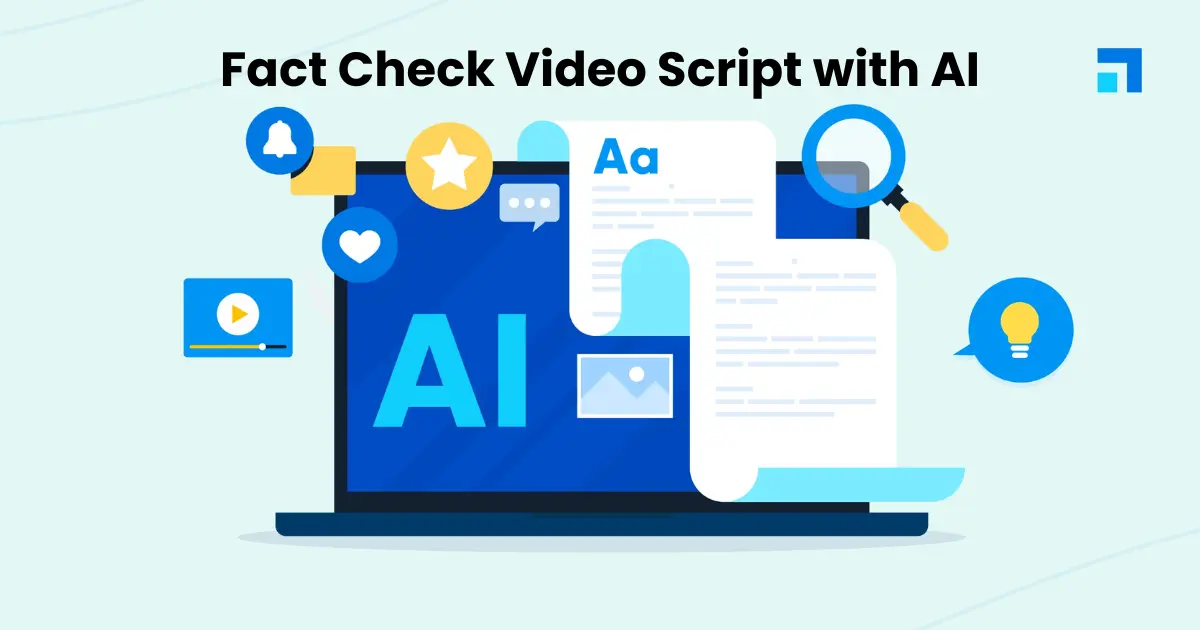
Contents
- 1 Importance of Fact-Checking in Video Scripts
- 2 Challenges of Traditional Fact-Checking Methods
- 3 How AI Transforms Fact-Checking for Video Scripts
- 4 Step-by-Step Guide: Fact Check Video Script with AI
- 5 Popular AI Tools for Fact-Checking Video Scripts
- 6 Ethical Considerations in AI-Based Fact-Checking
- 7 Future of Fact-Checking Video Scripts with AI
- 7.1 1. Enhanced Accuracy with Advanced Algorithms
- 7.2 2. Integration with Video Editing Software
- 7.3 3. Natural Language Processing (NLP) Improvements
- 7.4 4. Personalized Fact-Checking Solutions
- 7.5 5. Increased Accessibility for Small Creators
- 7.6 6. Ethical AI and Bias Mitigation
- 7.7 7. Automation of Cross-Referencing Sources
- 7.8 8. AI-Human Collaboration
- 7.9 9. Predictive Fact-Checking
- 7.10 10. Wider Adoption Across Industries
- 7.11 Conclusion
In the fast-paced world of content creation, maintaining accuracy and credibility is more important than ever. Video scripts, in particular, play a significant role in shaping public opinion and delivering impactful messages. To ensure reliability, creators increasingly rely on AI-powered tools to fact check video script efficiently and accurately. This innovative approach not only saves time but also minimizes the risk of spreading misinformation, empowering scriptwriters to create content that audiences can trust.
Importance of Fact-Checking in Video Scripts
Fact-checking video scripts is essential for ensuring accuracy and maintaining credibility in an era where misinformation spreads rapidly. Video scripts often serve as a powerful medium for education, entertainment, and news, shaping the perspectives and opinions of large audiences. Failing to fact-check can lead to unintended consequences, such as disseminating false information or damaging the creator’s reputation.
When creators fact check video script content, they establish trust with their audience, reinforcing their authority and professionalism. Reliable scripts also help protect against potential legal or ethical repercussions arising from inaccurate claims. By prioritizing fact-checking, content creators ensure their work contributes positively to the flow of information, enhancing its value and impact.
Challenges of Traditional Fact-Checking Methods
Traditional fact-checking methods are often time-consuming and inefficient, posing significant challenges for creators working under tight deadlines. Here are some of the key issues associated with these conventional approaches:

- Time Constraints
Manually verifying every claim in a video script requires extensive research, cross-referencing multiple sources, and fact-validation. This can be a slow process, particularly for creators producing time-sensitive content. - Human Error
Fact-checking performed manually is prone to mistakes, such as overlooking critical inaccuracies or misinterpreting information, which can lead to the inclusion of false claims in the script. - Limited Access to Resources
Traditional methods often rely on the availability of accurate and up-to-date information, which may not always be accessible or easy to verify within a short timeframe. - Bias and Subjectivity
Human fact-checkers may inadvertently introduce personal biases, leading to inconsistencies in the verification process and reducing objectivity. - High Costs for Larger Teams
Employing a team of fact-checkers to handle large volumes of content can be expensive, especially for smaller production teams or independent creators.
These challenges highlight the need for more efficient and reliable alternatives, such as using AI tools to fact check video script content, which addresses many of these limitations and streamlines the process.
How AI Transforms Fact-Checking for Video Scripts
AI technology has revolutionized the way creators fact check video script content, offering unparalleled speed, efficiency, and accuracy. By leveraging artificial intelligence, scriptwriters can overcome the limitations of traditional methods while enhancing the quality of their content. Here’s how AI transforms the fact-checking process:

1. Real-Time Verification
AI-powered tools can analyze video scripts in real time, instantly cross-referencing claims with databases, news articles, academic papers, and other credible sources. This capability ensures that scripts remain accurate and up-to-date, even in fast-moving industries like news or entertainment.
2. Speed and Efficiency
Unlike manual methods, which require hours of research, AI tools can fact-check an entire script in minutes. This significantly reduces the time spent on verification, allowing creators to focus on crafting engaging narratives.
3. Cross-Referencing Diverse Data Sources
AI systems are capable of accessing and cross-referencing a vast array of data sources simultaneously. This ensures comprehensive fact-checking, providing a broader perspective and reducing the chances of missing key information.
4. Pattern Recognition and Contextual Analysis
Advanced AI tools can recognize patterns and analyze the context of claims made in scripts. This helps them identify subtle inaccuracies or misleading information that might go unnoticed in manual reviews.
5. Scalability for Large-Scale Projects
AI tools can handle extensive scripts or large volumes of content without compromising accuracy. This makes them ideal for production teams working on multiple projects or long-form scripts.
6. Error Reduction
AI minimizes the risk of human error, ensuring that the verification process is objective and consistent. By eliminating bias and subjectivity, AI enhances the reliability of fact-checking.
By automating the process to fact check video script content, AI tools empower creators to produce accurate, credible, and impactful videos while saving time and resources. This transformation is setting new standards for content creation and verification across industries.
Step-by-Step Guide: Fact Check Video Script with AI
Using AI to fact check video script content is a streamlined process that ensures accuracy and efficiency. Follow these steps to verify your script effectively:

Step 1: Choose an AI Fact-Checking Tool
Select a reliable AI-powered tool designed for fact-checking. Popular options include:
- Google Fact Check Explorer: A comprehensive tool for verifying claims with trusted sources.
- Factmata: Specializes in identifying misinformation in content.
- Snopes AI: A fact-checking tool tailored for debunking myths and verifying claims.
Ensure the tool aligns with your content type and requirements, such as handling diverse topics or specific industries.
Step 2: Input the Script into the AI System
Copy and paste your video script into the AI tool’s interface. Some tools also allow file uploads or integration with content creation platforms.
- Ensure the script is formatted properly for better analysis.
- Highlight sections with specific claims or data points, if the tool supports this feature.
Step 3: Analyze the Results
Once the AI processes the script, it provides:
- Flagged Sections: Identifying claims requiring further verification.
- Suggested Edits: Recommendations to correct inaccuracies.
- Source References: Links to credible sources that verify or refute the information.
Review the results carefully to understand what changes are needed.
Step 4: Refine the Script Based on Suggestions
Edit your script using the AI’s insights:
- Replace flagged inaccuracies with verified information.
- Add citations or references to credible sources, where necessary.
- Adjust the tone or phrasing for better clarity and alignment with facts.
After revising, consider re-checking the script using the AI tool to ensure all corrections are accurate.
Step 5: Final Review by a Human Expert
While AI is highly efficient, a final review by a human expert adds an extra layer of accuracy. Cross-check key details to ensure the script is error-free and aligns with your creative vision.
By following these steps, you can seamlessly fact check video script content with AI, ensuring your video is both engaging and credible.
Popular AI Tools for Fact-Checking Video Scripts
Leveraging AI tools is a game-changer when you fact check video script content. These tools provide accurate, fast, and reliable results, ensuring your video scripts are error-free and credible. Below are some of the most popular AI tools for fact-checking video scripts:

1. Google Fact Check Explorer
A widely-used tool that aggregates fact-checks from verified sources globally. It allows users to search claims and find articles validating or debunking them.
- Key Features: Searchable database, source credibility ratings, and global coverage.
- Best For: Scripts that involve current events, statistics, or widely discussed topics.
2. Factmata
Factmata uses AI to detect misinformation, bias, and inaccuracies in content. It’s particularly suited for creators dealing with sensitive or controversial topics.
- Key Features: Misinformation detection, context analysis, and sentiment tracking.
- Best For: Verifying claims in opinion-based or controversial scripts.
3. Snopes AI
Snopes is a renowned fact-checking platform that now incorporates AI to analyze claims. It specializes in debunking myths, urban legends, and online rumors.
- Key Features: Focus on urban myths, debunking false claims, and reliable source integration.
- Best For: Scripts involving viral stories or social media trends.
4. Full Fact
Full Fact uses AI to automate fact-checking tasks, offering comprehensive verification for statements in video scripts.
- Key Features: Cross-referencing multiple sources, real-time updates, and government data integration.
- Best For: Scripts requiring verification of political or economic claims.
5. Logically
Logically combines AI with human expertise to analyze claims for misinformation. Its robust algorithms identify inaccuracies while highlighting credible sources.
- Key Features: AI-human collaboration, context analysis, and content moderation tools.
- Best For: Complex scripts with multiple layers of factual information.
6. ClaimBuster
This tool specializes in identifying and verifying claims, particularly for news or fact-heavy scripts. It automatically highlights statements needing verification.
- Key Features: Claim detection, quick validation, and integration with other tools.
- Best For: Scripts featuring dense data or multiple factual assertions.
7. Poynter’s MediaWise AI
MediaWise is an initiative by Poynter that uses AI to teach fact-checking techniques and offers tools for verifying script content.
- Key Features: Educational resources, fact-checking training, and AI tools for analysis.
- Best For: Educators and creators new to fact-checking practices.
By incorporating these tools into your workflow, you can efficiently fact check video script content, ensuring accuracy, credibility, and audience trust. Each tool offers unique features tailored to different needs, so choose one based on your specific project requirements.
Ethical Considerations in AI-Based Fact-Checking
While AI offers remarkable efficiency and accuracy for fact-checking, its implementation raises several ethical concerns. To fact check video script content responsibly, creators and organizations must address these considerations:

1. Accuracy of AI Algorithms
AI tools are only as reliable as the datasets they are trained on. Biased or incomplete data can lead to incorrect verifications, spreading further misinformation. Ensuring the use of diverse and high-quality datasets is essential to uphold accuracy.
2. Transparency in Fact-Checking
Users should understand how AI tools process and verify claims. Lack of transparency in algorithms can make it difficult to trust their results. Ethical use involves openly communicating the methodologies and limitations of AI fact-checking systems.
3. Accountability for Errors
When AI misidentifies information or makes errors, determining accountability becomes a challenge. Creators must take responsibility for verifying AI findings and should not rely solely on automated outputs.
4. Risk of Over-Reliance on AI
While AI can streamline the process to fact check video script content, excessive dependence on it might overshadow critical human judgment. Combining AI tools with human expertise ensures a balanced and comprehensive verification process.
5. Privacy Concerns
Some AI tools may require access to large amounts of data, potentially raising privacy issues. Organizations must ensure compliance with data protection laws and ethical guidelines while using such tools.
6. Bias in AI Systems
AI systems can inadvertently inherit biases from their training data, leading to skewed fact-checking results. Addressing bias requires continuous monitoring, retraining algorithms, and incorporating diverse perspectives.
7. Misuse of AI Fact-Checking
AI tools could be misused to manipulate narratives or reinforce specific agendas by selectively verifying or debunking claims. Ethical practices demand neutrality and impartiality in how these tools are applied.
8. Impact on Employment
The rise of AI-based fact-checking may reduce demand for human fact-checkers, impacting employment in this field. Ethical adoption involves finding ways to integrate human expertise alongside AI capabilities.
9. Accessibility and Fair Use
Fact-checking tools powered by AI should be accessible to diverse groups, including small creators and marginalized communities. High costs or restrictive use could limit their benefits to a privileged few.
By addressing these ethical considerations, content creators and organizations can ensure that AI fact-checking is used responsibly and transparently. Striking a balance between automation and human judgment is key to leveraging AI’s potential while minimizing ethical pitfalls.
Future of Fact-Checking Video Scripts with AI
The future of fact-checking video scripts with AI is promising, driven by advancements in technology and the growing demand for reliable content. Here are key trends and innovations shaping the evolution of AI-powered fact-checking:

1. Enhanced Accuracy with Advanced Algorithms
AI algorithms are becoming increasingly sophisticated, enabling them to better understand context, tone, and nuances in video scripts. This evolution will minimize errors and make AI tools more reliable for complex fact-checking tasks.
2. Integration with Video Editing Software
AI fact-checking tools are likely to integrate directly with popular video editing platforms, allowing creators to fact check video script content seamlessly during production. This real-time integration will streamline workflows and reduce manual effort.
3. Natural Language Processing (NLP) Improvements
With advancements in NLP, AI tools will be able to process and verify highly nuanced statements, understand cultural contexts, and provide more precise verifications. This will be particularly beneficial for scripts involving global or multilingual content.
4. Personalized Fact-Checking Solutions
Future AI tools may offer customizable fact-checking solutions tailored to specific industries or content types. For example, creators in science, politics, or finance could access tools designed to verify domain-specific claims with higher precision.
5. Increased Accessibility for Small Creators
As AI technology becomes more affordable and accessible, smaller content creators will be able to use these tools without financial constraints. Open-source platforms and freemium models are likely to grow, democratizing fact-checking capabilities.
6. Ethical AI and Bias Mitigation
Future AI systems will prioritize ethical considerations, incorporating safeguards to reduce biases and ensure fairness in fact-checking. Transparent algorithms and user-driven training data will play a crucial role in building trust.
7. Automation of Cross-Referencing Sources
AI will improve its ability to cross-reference vast amounts of data from credible sources automatically. This feature will provide real-time updates and verify claims against the latest information available, especially for breaking news or time-sensitive content.
8. AI-Human Collaboration
The future of fact-checking will likely involve collaboration between AI and human experts. AI will handle the bulk of verification tasks, while humans will oversee the process, providing context and addressing nuanced claims.
9. Predictive Fact-Checking
Advanced AI tools might soon predict potential inaccuracies in video scripts before they are even written. By analyzing patterns and trends, these tools could suggest corrections proactively, ensuring that misinformation is avoided at the planning stage.
10. Wider Adoption Across Industries
While currently popular in media and content creation, AI-based fact-checking will expand into industries like education, healthcare, and legal services. Video scripts in these domains require high levels of accuracy, making AI tools indispensable.
Conclusion
AI-powered fact-checking is transforming the way video scripts are created and verified, making it faster, more efficient, and increasingly accurate. By automating the verification process, AI ensures that creators can focus on producing high-quality, engaging content without compromising on factual accuracy. However, as with any technological advancement, ethical considerations must be addressed to ensure transparency, fairness, and reliability.
Looking ahead, AI will continue to evolve, offering even more refined tools for cross-referencing, error reduction, and context analysis. As the demand for verified and credible content grows, integrating AI into the content creation process will become not only a convenience but a necessity. Incorporating AI-based fact-checking into your video script production workflow will not only help you deliver trustworthy information but also streamline your processes, saving time and resources. As AI continues to advance, its role in ensuring the credibility of digital content will only grow, paving the way for more reliable, transparent, and informative media.

